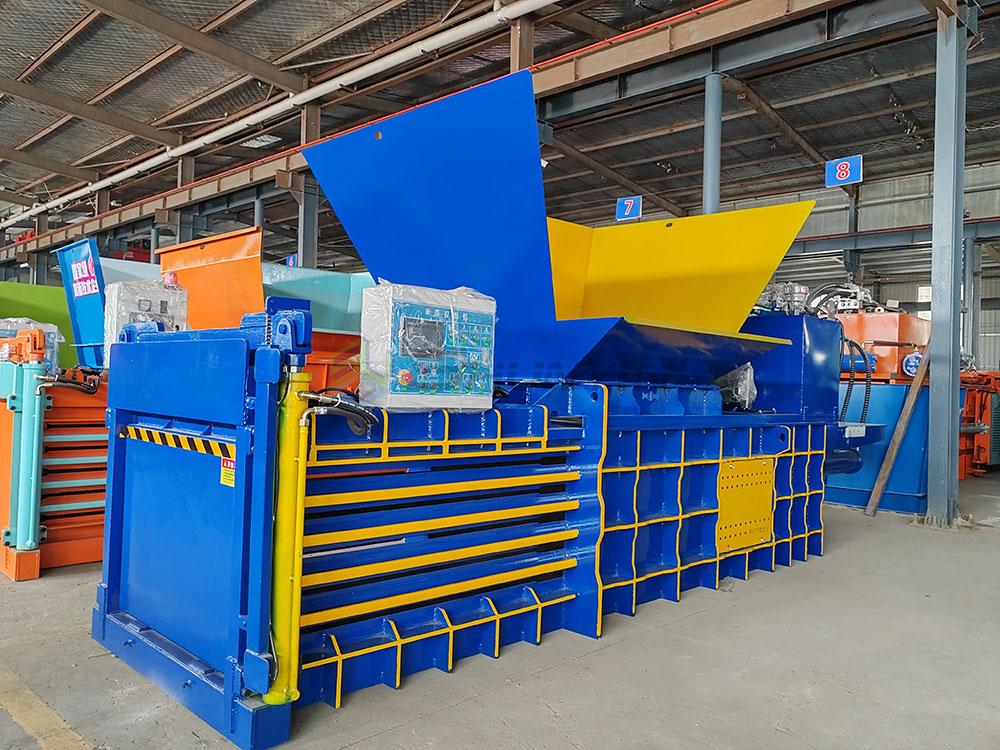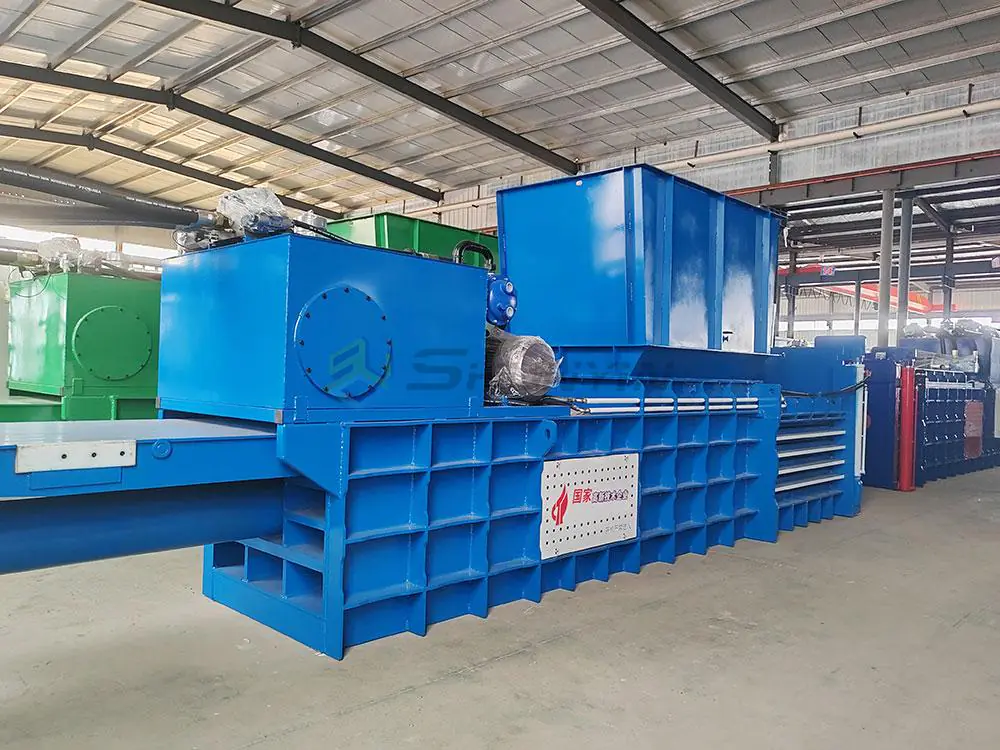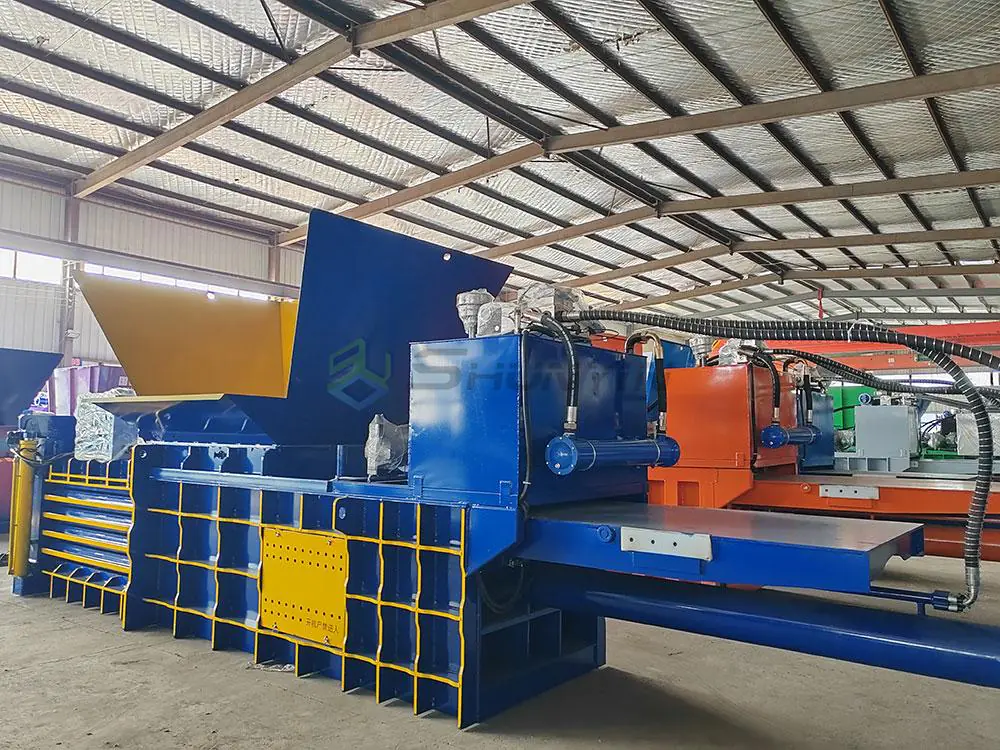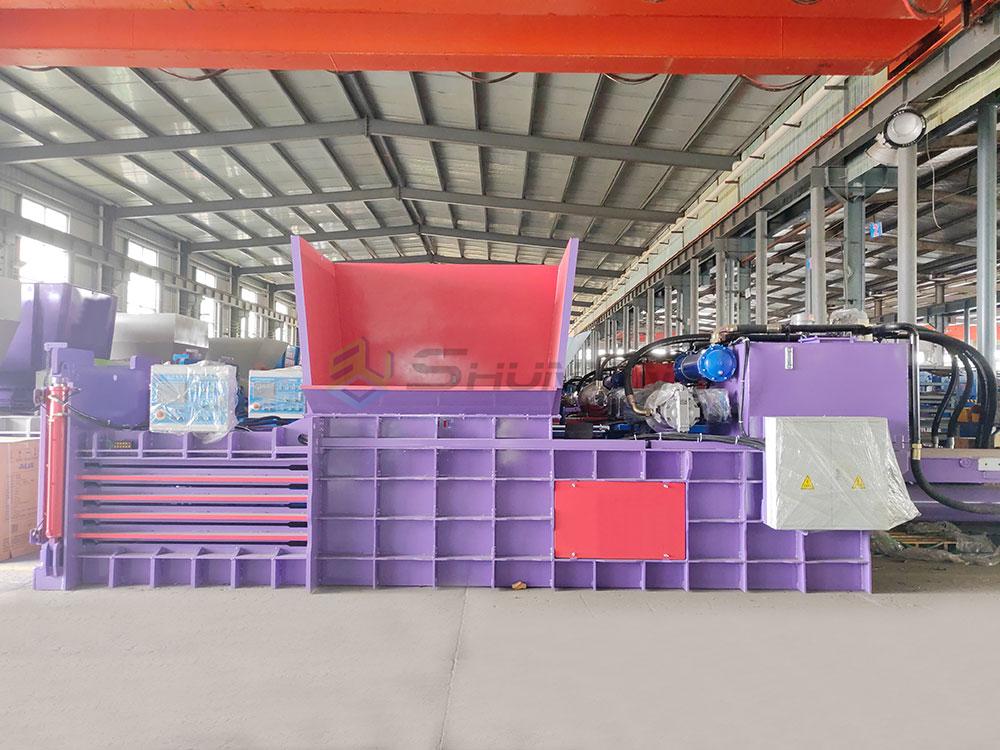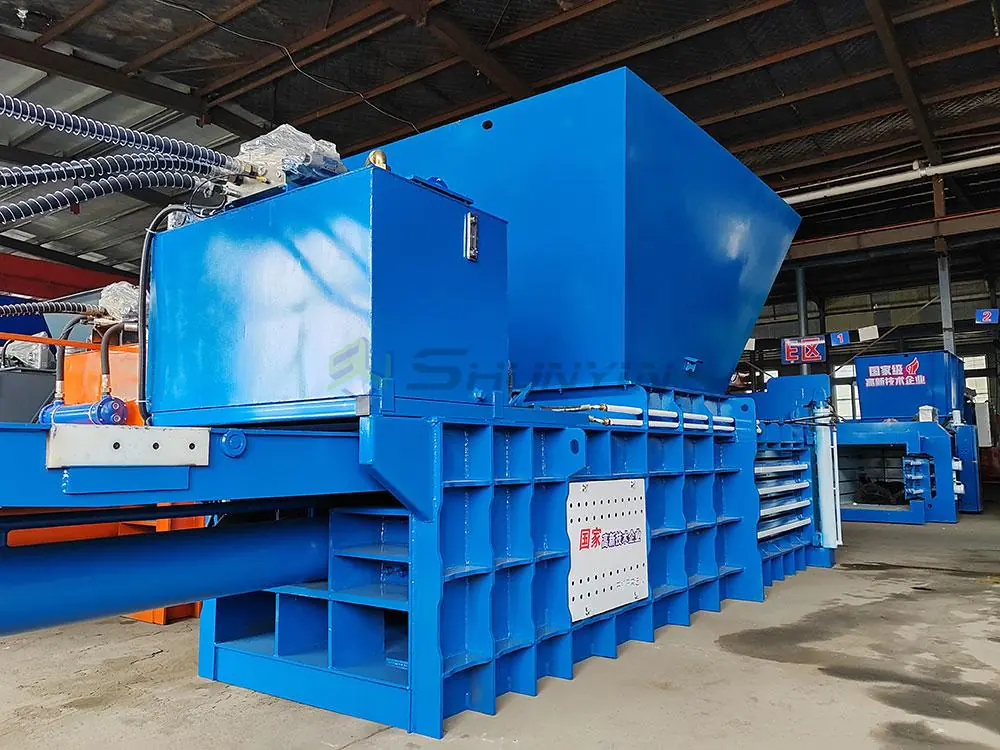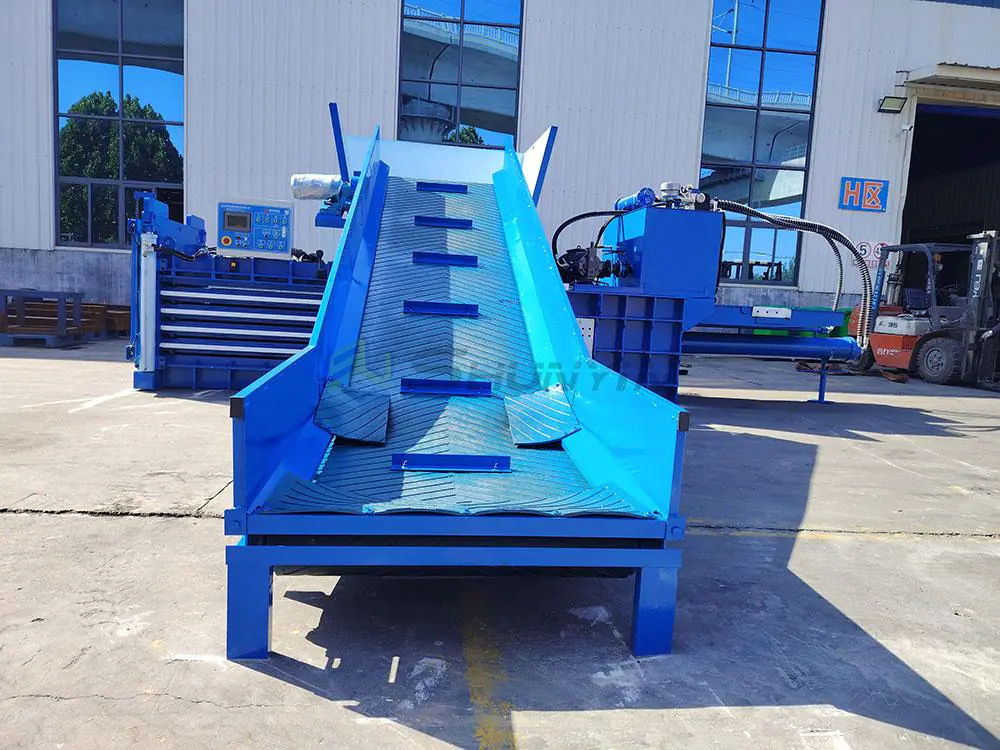Overflowing recyclables stealing your profits? Manual baling drains resources and morale. This automation breakthrough transforms waste chaos instantly.
Fully automated horizontal balers compress waste 10:1, operate 24/7 with 2 staff max compared to 8 manual workers, process 30+ tons/hour with PLC precision, and double recycling profits within 18 months.

The labor savings alone shocked Lambert. Discover how Japanese facilities run three shifts unmanned below.
What is the use of automatic baling machine?
Manual baling causing workplace accidents? I saw Canadian plants cut injury rates 90% with automation.
Automatic baling machines compress materials without human intervention, achieve 98% uptime through sensors detecting jams, self-adjust pressure via IoT, and auto-tie/eject bales at 1.6X manual speed reducing payroll 85% immediately.

Profit margins hidden in automation
Lambert’s biggest regret was waiting six years to switch. Don’t repeat his mistake.
ROI breakdown vs manual systems1
| Metric | Manual Operation | Automatic Baler | Improvement |
|---|---|---|---|
| Labor Cost/ton | $42 | $6 | 86% savings |
| Daily Output | 7 tons | 22 tons | 214% increase |
| Error Rate | 15% | 0.8% | 95% reduction |
| Payback Period | N/A | 14 months | Immediate value |
North American recyclers report $380,000 extra profit annually.
Smart monitoring features worth demanding
- Pressure sensors2: Prevent over-compression damage ($28/ton savings)
- Auto-lube systems: Eliminate downtime (+300 hours/year production)
- Remote diagnostics3: Fix 70% issues without technicians
Our PLC-controlled units ship with 36-month warranty. See control demo
How does a horizontal baler work?
Think it’s just crushing materials? Singapore recyclers missed these efficiency tricks for years. Big mistake.
Horizontal balers work via hydraulic rams forcing waste against walls, cycling automatically: feed material → compact → tie → eject → reset, creating dense rectangular bales preferred by recycling mills paying premium prices.

Precision engineering inside
I’ve designed balers since 2011. Here’s what competitors hide about chamber mechanics.
Force optimization secrets4
| Component | Function | Performance Impact |
|---|---|---|
| Main Ram | Primary compression | Dictates bale density (PSI) |
| Platen | Secondary compaction | Increases weight 25% |
| Pre-stretcher | Wire tensioning | Reduces wire breaks 76% |
| Ejector Ram | Bale removal | Cuts cycle time 18 seconds |
Japanese facilities gain 14% more bales/day tuning these.
Maintenance protocols that matter
- Ram alignment checks (weekly): Prevents $8,500 seal failures
- Oil purity monitoring (monthly): Extends pump life 3X
- Wire sensor calibration (quarterly): Avoids 500kg bale collapses
Our units come with maintenance tracking software.
How do auto balers work?
Robotic arms costing millions? Not here. This PLC system transformed Lambert’s plant in days.
Auto balers work through intelligent sequencing: infrared detects full chamber → initiates compression → auto-tiers secure bales → conveyor removes output → alerts staff only for material reloading, enabling complete unattended operation.

The magic of programmed intelligence
Customizable cycles solve unique challenges. Like this Vietnamese factory’s bottle issue.
Material-specific cycle programming5
| Material | Compression Time | Wire Patterns | Air Cooling Phase | Notes |
|---|---|---|---|---|
| Cardboard | 42 seconds | 7 wires | 12 seconds | Prevents fire risks |
| PET Bottles | 31 seconds | Cross-tie | 8 seconds | Maintains flake quality |
| EPS Foam | Custom cycles | No wires needed | N/A | Uses compression only |
Client cut foam baling costs from $53 to $11/ton.
Automation upgrade pathways
- Basic timer systems: $3,200 (good for stable materials)
- Sensor-driven control: $8,500 (adjusts to jams)
- AI predictive systems6: $12,000 (learns material behavior)
Most clients recoup investment in 7 months.
What does a baler do in the office?
Paper mountains eating floor space? Small offices bleed over $15,000 yearly ignoring space costs.
Office balers condense paper/cardboard into dense bales, reclaiming 75% floor space typically wasted on containers while turning trash into recyclables worth $80-120/ton with minimal staff involvement.

Corporate recycling goldmines7
Canadian offices earn carbon credits. Here’s how yours could profit too.
Mini-balers vs traditional waste8
| Factor | Wheeled Bins | Vertical Office Baler | Benefit |
|---|---|---|---|
| Space Usage | 2m² per bin | 0.8m² total | 60% smaller |
| Staff Time | 3 hrs/week | 20 mins/week | 95% save |
| Recycling Rate | 45% | 92% | Double recovery |
| Fire Risk | High (loose paper) | Low (compacted bales) | Safer |
Simple baling creates ESG reporting assets.
Compact model recommendations
- Micro-vertical: Under 200kg/day ($2,800)
- Soundproof cabinets: For open offices (+$1,100)
- Anti-dust systems: Improves air quality
We ship office-ready units in under 10 days.
Conclusion
Fully automated horizontal balers eliminate manual costs, maximize space efficiency, create new revenue streams from waste materials, and operate reliably with minimal oversight – delivering measurable ROI in under 18 months.
-
Discover the financial advantages of switching to automated balers over manual operations. ↩
-
Understand how pressure sensors enhance baling efficiency and prevent damage. ↩
-
Find out how remote diagnostics can reduce downtime and maintenance costs. ↩
-
Learn about the critical components that enhance baler performance and efficiency. ↩
-
Explore how tailored programming can optimize baling for different materials. ↩
-
Find out how AI can revolutionize baling processes and improve efficiency. ↩
-
Discover how effective recycling programs can turn waste into profit for businesses. ↩
-
Understand the benefits of mini-balers in optimizing space and reducing labor. ↩


